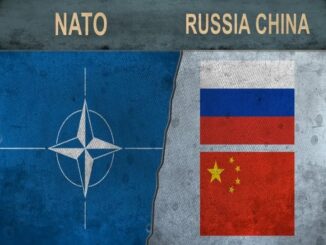
Eight EU universities made it into the top 50 of the Shanghai 2024 University Ranking, with Paris-Saclay achieving the highest score among EU universities, which, despite being the most numerous in the overall ranking compared to their US and Chinese counterparts, paled in the top 50.
The Shanghai ranking, known as the Academic Ranking of World Universities (ARWU) and first published in 2003, is an annual publication that ranks global universities based on their academic and research performance.
“Paris-Saclay is magical! Never before has a French university been ranked so highly in the prestigious Shanghai Ranking: 12th in the world,” French President Emmanuel Macron wrote on X Thursday (15 August), the day the ranking was published.
Paris-Saclay University has climbed three spots in just one year, becoming the top-ranked EU university in 2024.
Meanwhile, of the top 10 universities in the ranking, eight are American (the top three are all US universities), while the remaining two (Cambridge and Oxford – ranked fourth and sixth respectively) are British.
Only eight EU universities in top 50
Besides Paris Saclay, the Paris Sciences et Lettres University has reached the 33rd spot this year (up eight spots from 2023), while Sorbonne University ranked 41st (up five spots) – ensuring France has three of its universities in its top 50.
In total, eight EU universities have made it to the ranking’s top 50.
In addition to the three French academic institutions, these include three German institutions, all of which rank lower than the French (43, 47, 50), as well as the University of Copenhagen (32nd) and Sweden’s Karolinska Institute (joint 43rd).
Regarding the overall ranking, the EU bloc also ranks ahead of the United States and China.
With 135 universities in the top 500, the EU is ahead of the US (114) and China (91). The same is true for the top 1,000, while China has 203 and the United States 183.
However, not all EU countries are well represented in the ranking.
While Germany, France, Italy and Spain – all among the larger countries in the bloc – each have more than 40 universities in the ranking, 10 EU countries have only one, such as Cyprus or Luxembourg, or none, such as Romania or Malta.
A prestigious but criticised ranking
While the reputation of the Shanghai ranking list is well established and respected by some, other rankings provide valuable insights, such as the Times Higher Education, the QS World University Rankings or the CWTS Leiden ranking list. Each has its own methodology, which explains their different results.
Regarding the Shanghai Ranking, for instance, the methodology has been criticised for relying solely on quantitative criteria and for overemphasising the hard sciences at the expense of the social sciences and humanities. Philosophy and linguistics are not included.
Since 2014, the European Commission has been supporting the U-Multirank ranking in partnership with several European universities.
The idea is “to avoid simplistic rankings that can lead to misleading comparisons.”
Yet it has not achieved the same success as its American and Chinese competitors.
Take the Survey at https://survey.energynewsbeat.com/





